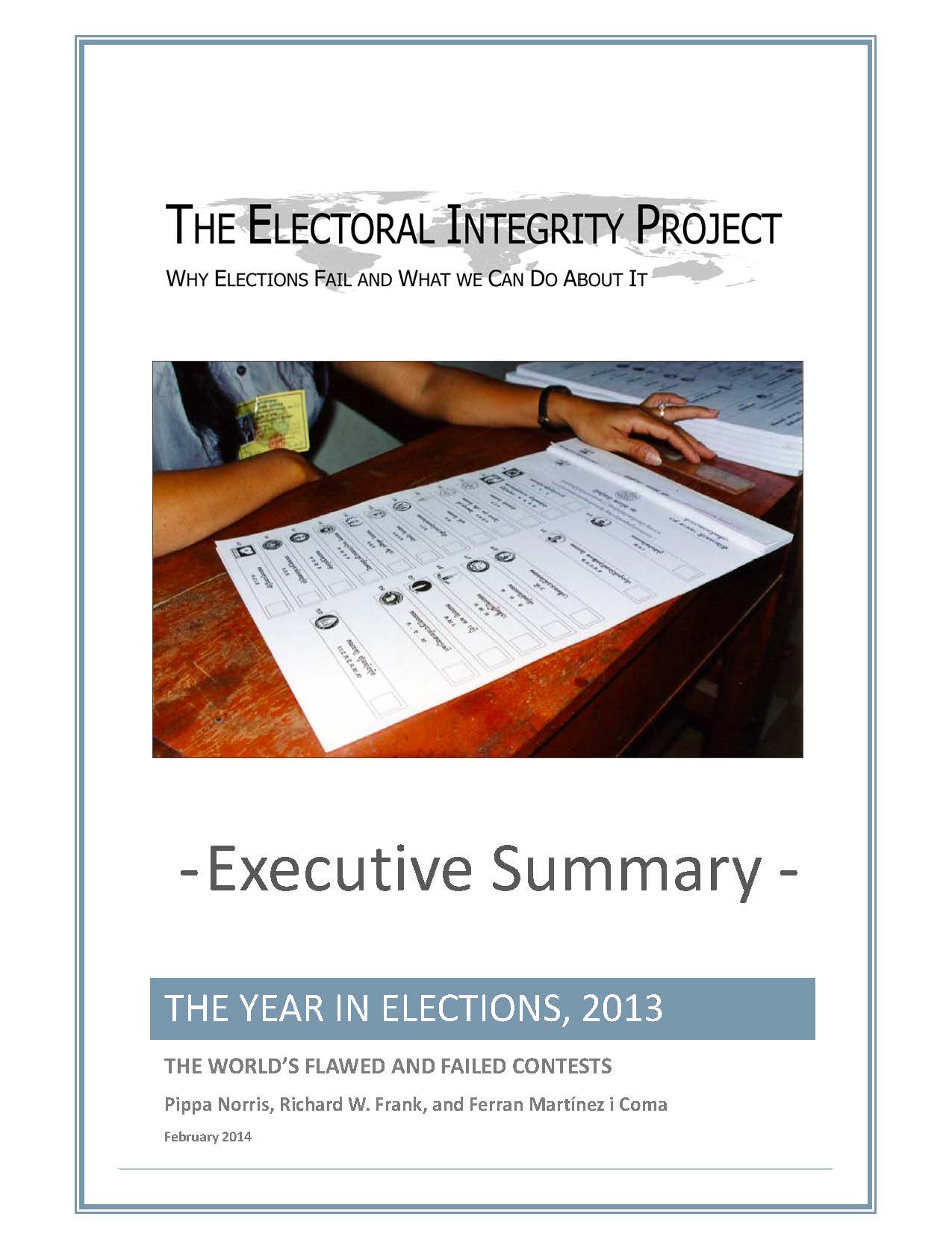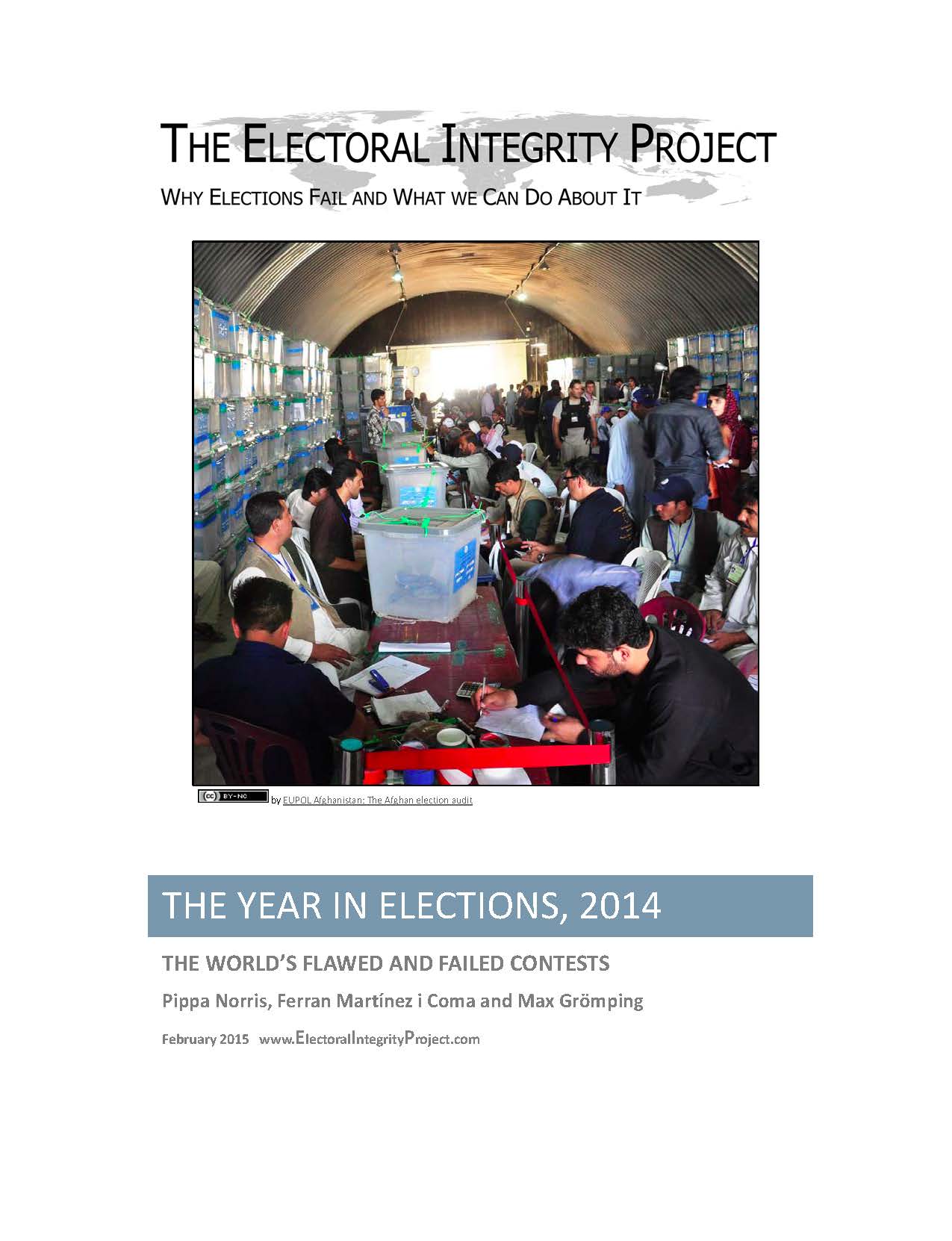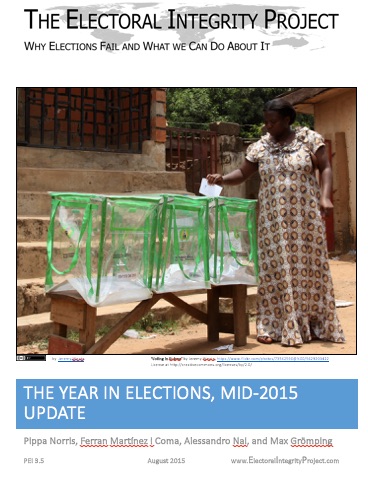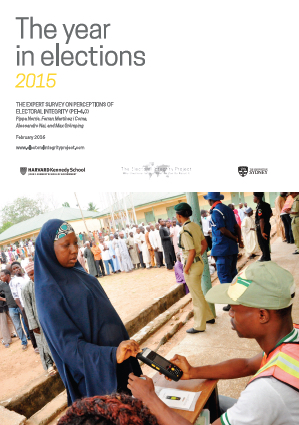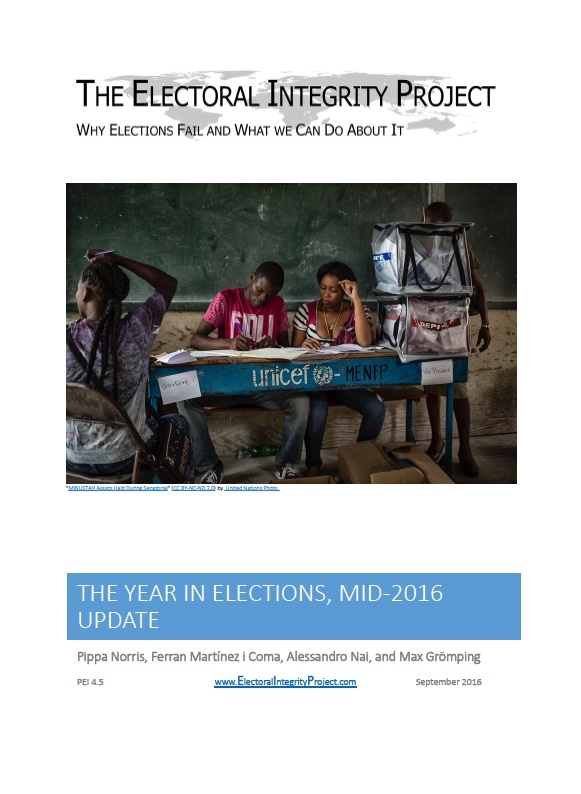Electoral Integrity Report, 2019
Elections should provide opportunities for citizens to participate in politics and hold leaders to account. When they work well, elections can deepen civic engagement, inform public debate, stimulate party competition, strengthen government responsiveness, and allow the peaceful resolution of political conflict.
The problem is that too often contests fail to achieve these objectives. To assess global trends, the Perceptions of Electoral Integrity expert survey monitors elections worldwide and regionally, across all stages of the electoral cycle.
This report describes the Perceptions of Electoral Integrity dataset (PEI-7.0). The dataset is drawn from a rolling survey of 3,861 expert assessments of electoral integrity across 337 elections in 166 countries around the world. The cumulative study covers all national presidential and parliamentary elections from July 1, 2012 to December 31, 2018. This annual release adds 53 presidential or parliamentary contests held during 2018.
Perceptions of electoral integrity are measured by experts in each country one month after polls close. Experts are asked to assess the quality of national elections on eleven sub-dimensions: electoral laws; electoral procedures; district boundaries; voter registration; party registration; media coverage; campaign finance; voting process; vote count; results; and electoral authorities. These items sum to an overall Electoral Integrity Index scored from 0 to 100. Additional batteries of items are used to monitor specific problems each year. Given widespread concerns about the issue of fake news, online disinformation, and foreign meddling, the 2018 survey focused on issues of campaign media.
A snapshot of the results across the globe and by region is illustrated below. See the full report and dataset for more details.
EIP - May 2019


